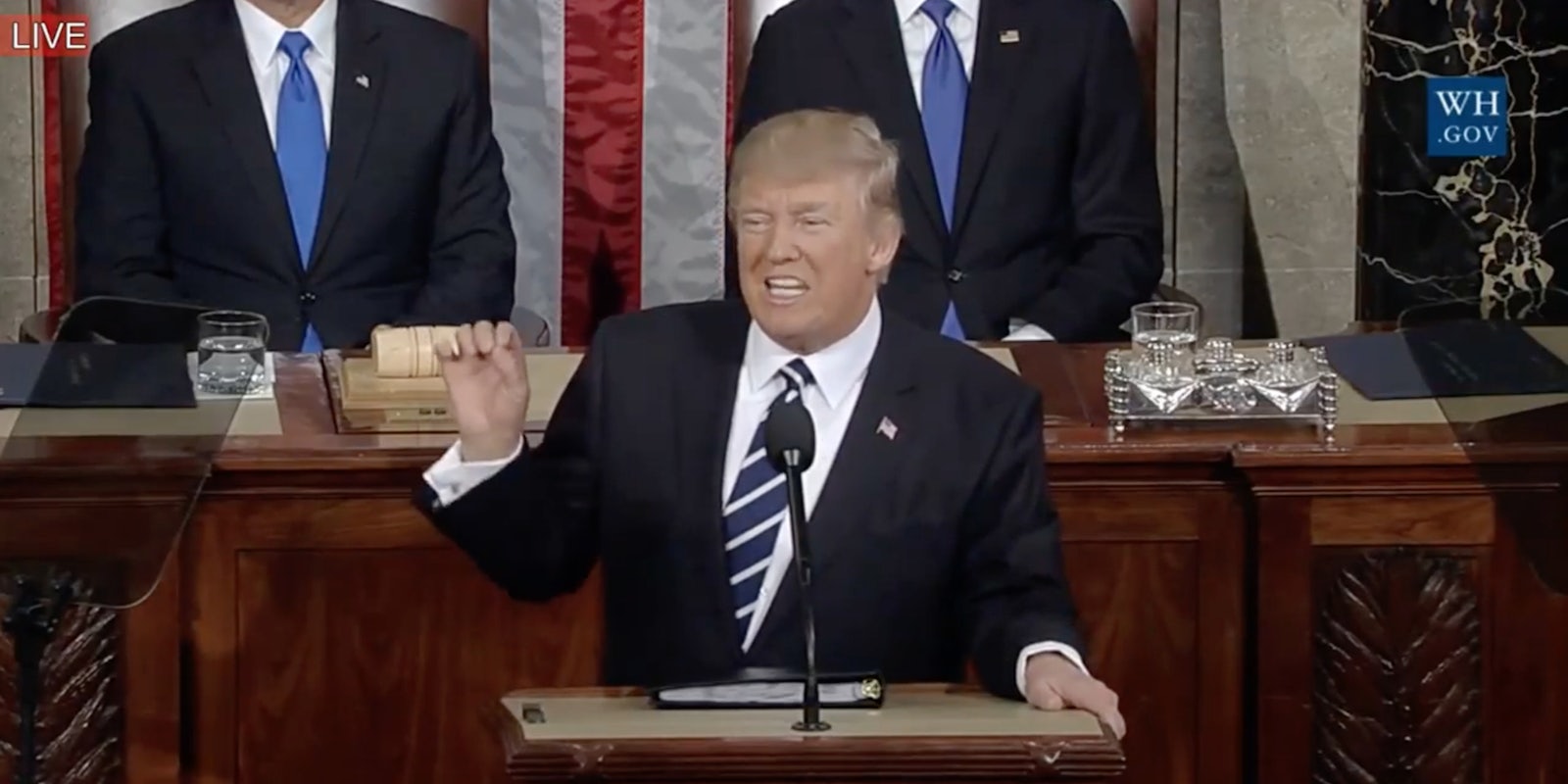Bomb threats targeting Jewish centers and schools, combined with recent vandalism at Jewish cemeteries, have instilled a climate of alarm and insecurity in communities across the U.S.
In no fewer than 33 states this year, the terroristic threats have given birth to new fears that anti-Semitism may be on the rise in America. Photographs of children, some less a year old, evacuating from one of the 20 plus buildings threatened on Monday alone went viral on social media, in some cases fueling resentment aimed at President Donald Trump, whom Jewish leaders have criticized in recent days for not denouncing anti-Semitism by name.
Addressing the nation on Tuesday night in his first appearance as president before a joint session of Congress, Trump condemned the threats in clear terms—after recognizing Black History Month—in the top paragraph of his speech.
“Recent threats targeting Jewish Community Centers and vandalism of Jewish cemeteries, as well as last week’s shooting in Kansas City, remind us that while we may be a Nation divided on policies, we are a country that stands united in condemning hate and evil in all its forms,” Trump said, referring as well to the shooting of two Indian men in Kansas last week, which the White House has acknowledged was likely “an act of racially motivated hatred.”
Trump’s remarks before Congress, which topped a speech that offered a sweeping summary of the agenda Trump laid out on the campaign trail, while taking an uncontroversial and “presidential” tone, followed a day of confusion over the president’s stance on the repeated bomb threats. Reports that Trump had implied that the Jewish community itself may be responsible—in order to “make others look bad,” he said, according to Pennsylvania Attorney General Josh Shapiro, who visited the White House on Tuesday—drew immediate outrage from Jewish figures.
Steven Goldstein, executive director of the Anne Frank Center, told the New York Daily News that, if the reports were true, Trump was attempting to “cast doubt on the authenticity of anti-Semitic hate crimes”—an act, said Goldstein, that “constitutes anti-Semitism in itself.”
According to Shapiro, who spoke to BuzzFeed News after meeting the president at a gathering of state attorneys general, Trump said, “Sometimes it’s the reverse, to make people—or to make others—look bad,” as if to suggest the threats may not be legitimate hate crimes. Trump’s remark followed what appeared to be a similar sentiment from Anthony Scaramucci, a former Trump campaign adviser, who tweeted that it was unclear who the perpetrators are, along with, “Don’t forget @TheDemocrats effort to incite violence at Trump rallies.”
The Anti-Defamation League called on the White House to immediately clarify its stance, with Jonathan Greenblatt, the group’s chief executive, saying it was “incumbent upon the president to lay out in his speech tonight his plans for what the federal government will do to address this rash of anti-Semitic incidents.”
The president, however, only broached the topic for a few seconds in his address to say that the country was united in “condemning hate and evil in all its forms,” a platitude unlikely to satiate Americans demanding swift action from the federal government; particularly those who are fearful that without it, empty threats could evolve into actual violence.
Greenblatt, who urged Jewish institutions on Monday to review their safety procedures, said he hopes the government will continue its ongoing investigation into the threats, adding that he had “full confidence” that the FBI “will bring the culprits to justice.”


